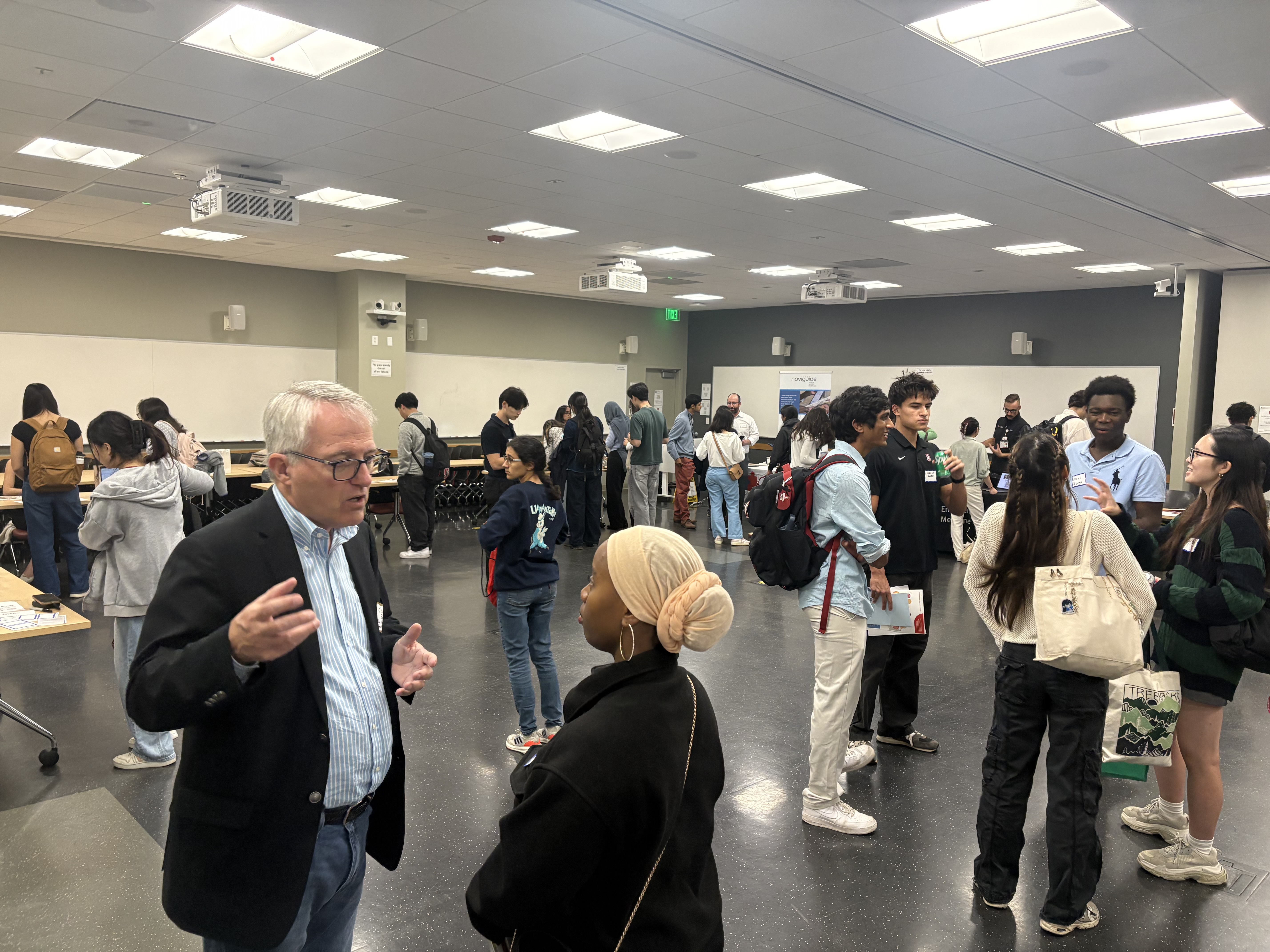On Friday evening, over 100 students and local organizations gathered for the annual Global Health Opportunities Fair at the Li Ka Shing Learning and Knowledge Center.
The Stanford Undergraduate Global Health Club (UGHC) and Stanford Graduate Global Health Network (GGHN) hosted the event in collaboration with the Center for Innovation in Global Health (CIGH) and Bay Area Global Health Alliance (BAGHA). The organizers of the fair aimed to provide a unique space to connect students with organizations that need more support.
With recent challenges to U.S global health priorities such as the shutdown of the United States Agency for International Development (USAID) and stifling of the United States President’s Emergency Plan For AIDS Relief (PEPFAR), “there’s a lot of uncertainty and fear about what the next step is,” said Hailey Ramzan ’27, UGHC vice president.
“A lot of global health nonprofits, especially those on the smaller to medium-size scale, had to lay off many people,” said Max Zhang Yang ’27, UGHC president and one of the co-organizers of the fair. “At the same time, we heard from students that they wanted to get more involved in research and were fine with volunteering their time, even if it was unpaid.”
Simply bringing people with common interests together can help kickstart such efforts.
“[The fair] can facilitate an exchange of ideas, you can learn about what other global health work that’s going on, maybe research methodologies you’ve never heard about,” Yang said.
Yang co-organized the event with Eliza Ennis, a fourth-year Ph.D. candidate in health policy, who is also a leader of the GGHN and a BAGHA Advisory Council Member.
Ennis was hoping to support students by connecting them with global health organizations across the Bay. When she first came to Stanford, she was aware of ongoing global health research but unsure of how to find it.
“I know as a grad student, I have projects that I would love to have an undergrad help with,” Ennis said.
The event was able to feature more than thirty opportunities including on-campus labs and international non-profits with support from BAGHA’s connections with non-Stanford organizations, according to organizers.
Michele Barry, Director of CIGH and Colin Boyle, Board Chair of BAGHA provided opening remarks. Students were then encouraged to walk around the room and introduce themselves to representatives tabling around the room.
Yang hopes the fair can be a stepping stone for newer students to get involved with the community lifelong.
“The key is to think globally and act locally,” Yang said. “Especially as undergrads, there tend to be more local opportunities but being able to address health inequities anywhere is really crucial.”
Ennis, originally from rural New Mexico, agreed that there shouldn’t be a big differentiation between global and local health. She sees plenty of benefits of applying the same techniques and lessons learned in domestic rural settings to places abroad.
The fair also attracted students and organizations with more non-traditional backgrounds in global health.
Kushal Patel ’29 attended the event to find a mentor that shares his interdisciplinary interests across technology and health policy. He described global health as “not an industry, but a culture of social innovation.”
Adeline Liao ’27 was recruiting students to join her startup Niora Systems, which focuses on developing technology to prevent systemic failures in medication delivery.
“[Global health is not] just a space exclusively for non-profits, but systems that span economics and markets, private sector industries, and multinational collaborations,” Liao said.
UGHC prides itself on being a diverse, wide-ranging club for people of all majors and pre-professional tracks, according to Yang. He believes this diversity in perspective offers students the opportunity to broaden their own horizons.
“Even though I didn’t come from a health policy background, I’ve been forced to confront the fact that this is an integral part of making global health a reality,” Yang said.
Ramzan thinks similar events can continue to promote awareness about a lack of accessibility in the wide varieties of healthcare systems around the globe.
“I think global health is as much of a problem for us as it is for the people in rural Kenya,” Ramzan said. “It is our responsibility to leverage our position as Stanford students, or just anyone in the world with privilege, to uplift those who don’t have that.”
Source link
